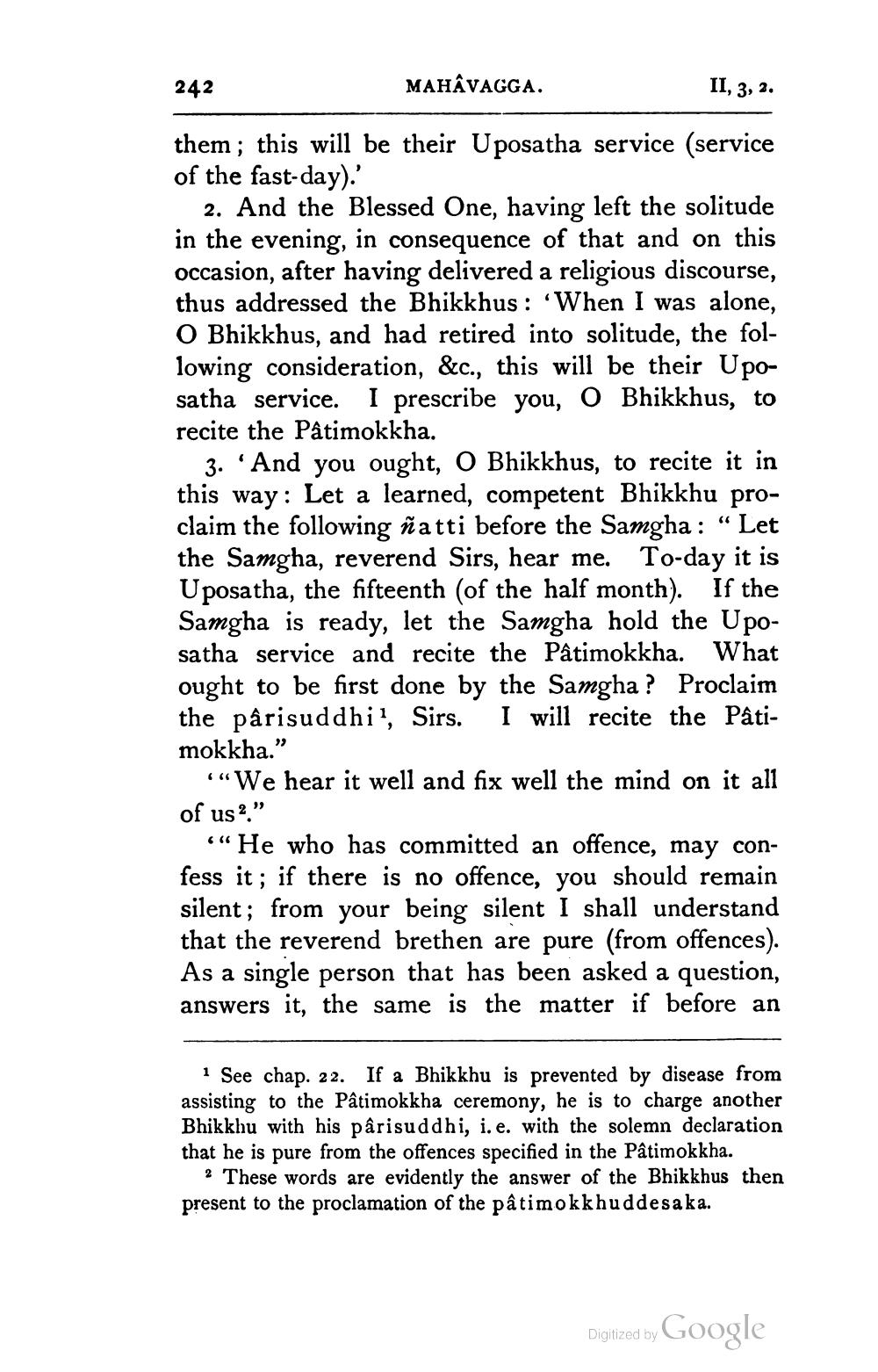________________
242
MAHAVAGGA.
II, 3, 2.
them; this will be their Uposatha service (service of the fast-day).'
2. And the Blessed One, having left the solitude in the evening, in consequence of that and on this occasion, after having delivered a religious discourse, thus addressed the Bhikkhus: 'When I was alone, O Bhikkhus, and had retired into solitude, the following consideration, &c., this will be their Uposatha service. I prescribe you, O Bhikkhus, to recite the Pâtimokkha.
3. 'And you ought, О Bhikkhus, to recite it in this way: Let a learned, competent Bhikkhu proclaim the following ñatti before the Samgha : “Let the Samgha, reverend Sirs, hear me. To-day it is Uposatha, the fifteenth (of the half month). If the Samgha is ready, let the Samgha hold the Uposatha service and recite the Pâtimokkha. What ought to be first done by the Samgha ? Proclaim the pârisuddhi", Sirs. I will recite the Pâtimokkha."
""We hear it well and fix well the mind on it all of us 2.”
““He who has committed an offence, may confess it; if there is no offence, you should remain silent; from your being silent I shall understand that the reverend brethen are pure (from offences). As a single person that has been asked a question, answers it, the same is the matter if before an
See chap. 22. If a Bhikkhu is prevented by disease from assisting to the Pâtimokkha ceremony, he is to charge another Bhikkhu with his pârisuddhi, i.e. with the solemn declaration that he is pure from the offences specified in the Pâtimokkha.
2 These words are evidently the answer of the Bhikkhus then present to the proclamation of the pâtimokkhuddesaka.
Digitized by Google




